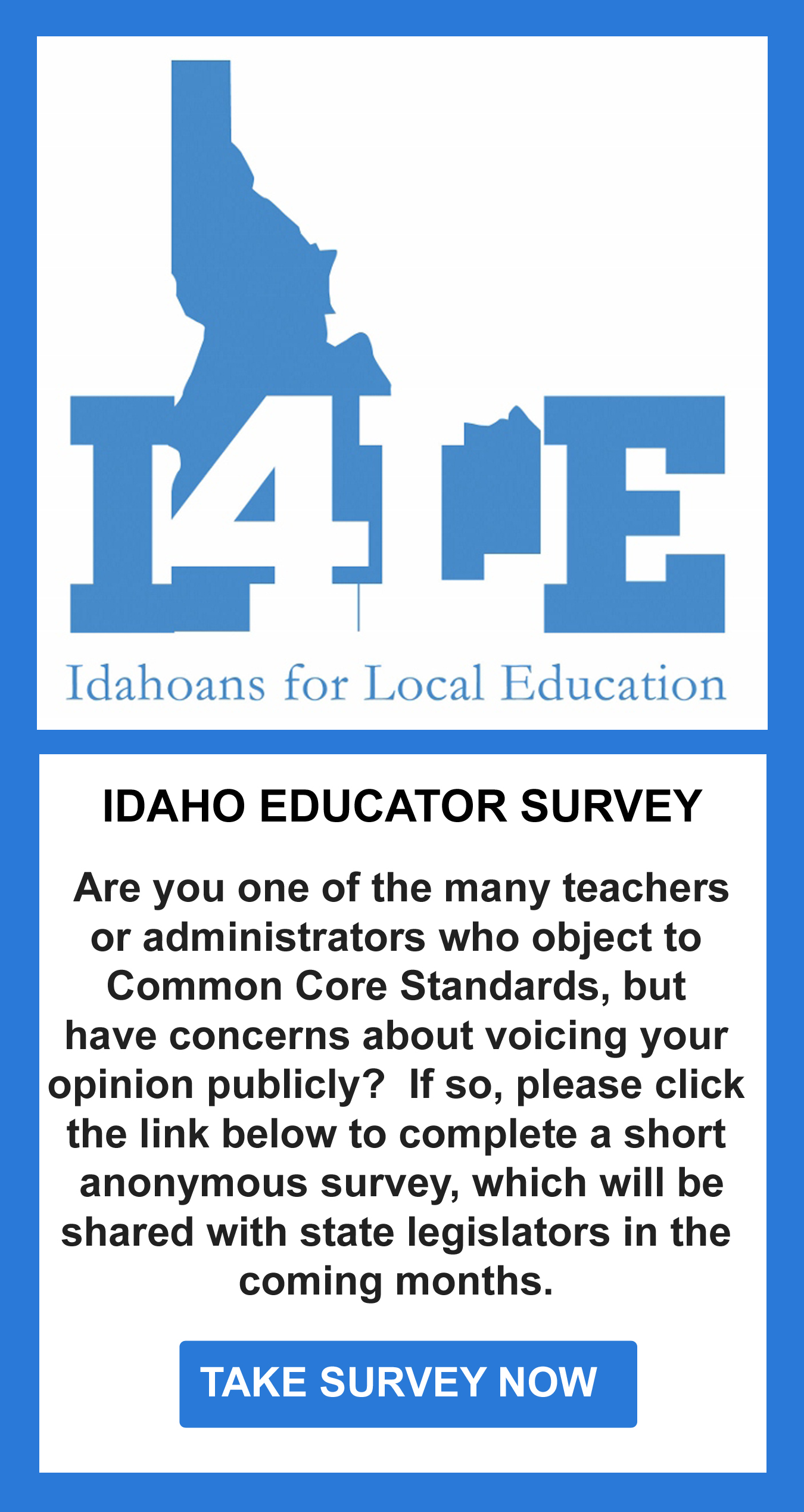What to do? What to do?
I have received several emails lately from people asking me, “I just learned about Common Core. I know it needs to be stopped, but what can I do?” They are asking me the same question I asked myself just a few months ago. I thought it might be a good idea to put out a little “to-do” list just to help people get started.
1. Read a lot. Make sure you learn as much about Common Core as you can. Here are a few good places to start:
Education Without Representation
Know the myths versus facts.
And this white paper is a very good source of information:
Controlling Education From the Top.
And then watch this video we posted earlier, Common Core Primer. (When you stop sleeping at night because of all you’ve learned, don’t blame me.)
2. Now, start talking to people; friends, neighbors, your children’s teachers, etc. Let them know about Common Core, (we don’t want them sleeping at night either.)
3. Start contacting your senator and representatives. They need to know that you have concerns about Common Core. (They’ll try to tell you not to worry, but trust me, after you’ve read all of the above, you’ll know more than they do.)
4. Start a media campaign. Contact your local radio stations and newspapers. Write letters to the editor.
This next part comes from Christel Swasey’s website, Common Core: Education Without Representation. This is a great list that I couldn’t really improve upon:
5. Attend local and state school board meetings and visit or call your state superintendent to find out who actually cares about this issue. Sample questions to ask:
- Where can I read our state’s cost analysis for implementing Common Core and its tests?
- What is the amendment process for Common Core standards if we find out they are not working for us?
- Where can I see for myself the evidence that Common Core standards have been proven to be of superior quality and that they are internationally benchmarked?
- Where can I see for myself evidence that Common Core’s transformations (deleting cursive, minimizing classic literature, moving away from traditional math, etc.) –will benefit our children?
- What is the American process of representation of individuals in the Common Core education and assessments system?
- Does it seem good that the meetings of the standards writers (the CCSSO/NGA) are all closed-door meetings?
- I read that there is a 15% cap on a state adding to the Core; so what do we do if we need to add a whole lot more to actually prepare our children well?
- Although I have been told that Common Core is state-led, I missed the invitation to discuss this before it was decided for me and my children; please explain the analysis and vetting process for the upcoming national science and social studies standards.
- The Constitution assigns education to the states, not to the federal government. Also, the federal General Educational Provisions Act (GEPA) states: “No provision of any applicable program shall be construed to authorize any department, agency, officer, or employee of the United States to exercise any direction, supervision, or control over the curriculum, program of instruction, administration, or personnel of any educational institution, school, or school system, or over the selection of library resources, textbooks, or other printed or published instructional materials by any educational institution or school system…“ In light of this, please explain why our state has agreed to intense micromanagement by the federal government under Common Core testing.
Here is another good list of things to do. And last but not least the TAE website has a Action Center with some great suggestions.
This is a big battle with a lot of major player; but as they’re finding in Indiana, a few well-informed, concerned citizens can take down Goliath. It just takes time, planning, effort, and a whole lot of faith.
Tags: CCSS, ccsso, Christel Swasey, Common Core, constitutional issues, education, How to Fight for Freedom, Idahoans Against Common Core, Idahoans for Local Education, Jane Robbins, liberty, nga, Stop Common Core, tool kit, Truth in American Education, What One Person Can Do





Awesome, Stephanie! Lot’s of great information that we can point folks to who are wanting to learn. Thank you for organizing this!